Louisiana Supreme Court hears arguments on Ochsner’s COVID-19 vaccine mandate
The Supreme Court of Louisiana is set to rule on COVID-19 vaccine mandates imposed on Ochsner Health employees in Lafayette, Shreveport and Monroe after hearing arguments in New Orleans on Tuesday.
Ochsner employees across the state were given an Oct. 29 deadline to either get vaccinated against COVID-19, prove a religious or medical exemption or else face firing by the health system, which led to lawsuits joined by dozens of employees.
The state Supreme Court heard arguments Tuesday in those cases when Alexandria attorney Jimmy Faircloth, representing the employees, argued they were protected from firing under the state’s informed consent statute.
September: Ochsner, Lourdes employees file lawsuit objecting to COVID-19 vaccine mandate
October: Ochsner LSU Health employees file suit over COVID vaccine mandates
Lafayette attorney Jim Gibson, representing Ochsner, argued the employees could be fired for refusing to comply with the mandate since their employment with Ochsner is at will.
Ochsner announced last week that nearly 99% of employees had either been vaccinated or gotten an exemption, though that figure excluded employees in Shreveport and Monroe, where an appeals court order prohibited Ochsner from implementing the mandate.
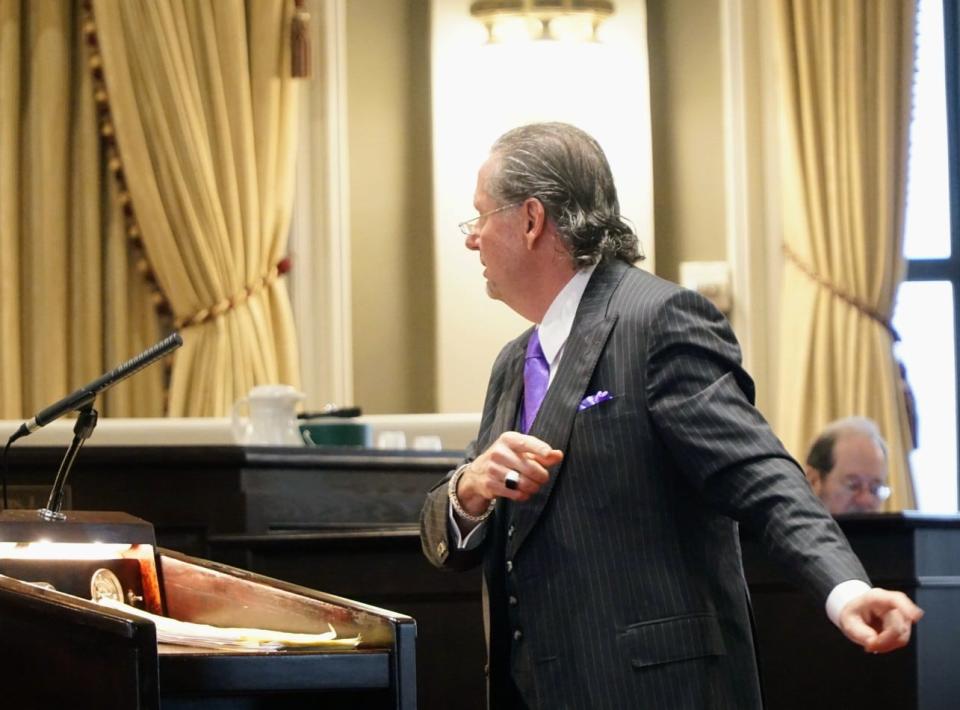
Of the approximately 75 employees who sued Ochsner over the mandate, just two or three are still waiting on a court decision, according to Faircloth. Many quit their jobs, and the majority received religious or medical exemptions.
This week: Amid court challenges, just 1% of impacted Ochsner staff rebuffs vax mandate
Ochsner refused last week to disclose how many of its employees had been granted exemptions to the mandate.
Tuesday’s arguments saw four of the Louisiana Supreme Court’s seven justices question Faircloth and Gibson on whether Ochsner’s mandate violated at-will employment protections or the employees’ right to choose whether or not to accept medical treatment.
“(Employees are) given an option, are they not? They’re being given an option to be vaccinated or not,” Chief Justice John L. Weimer, of Thibodaux, asked Faircloth during arguments Tuesday.
“Then they have a choice to make. As we say often in criminal law, a hard choice is still a choice.”
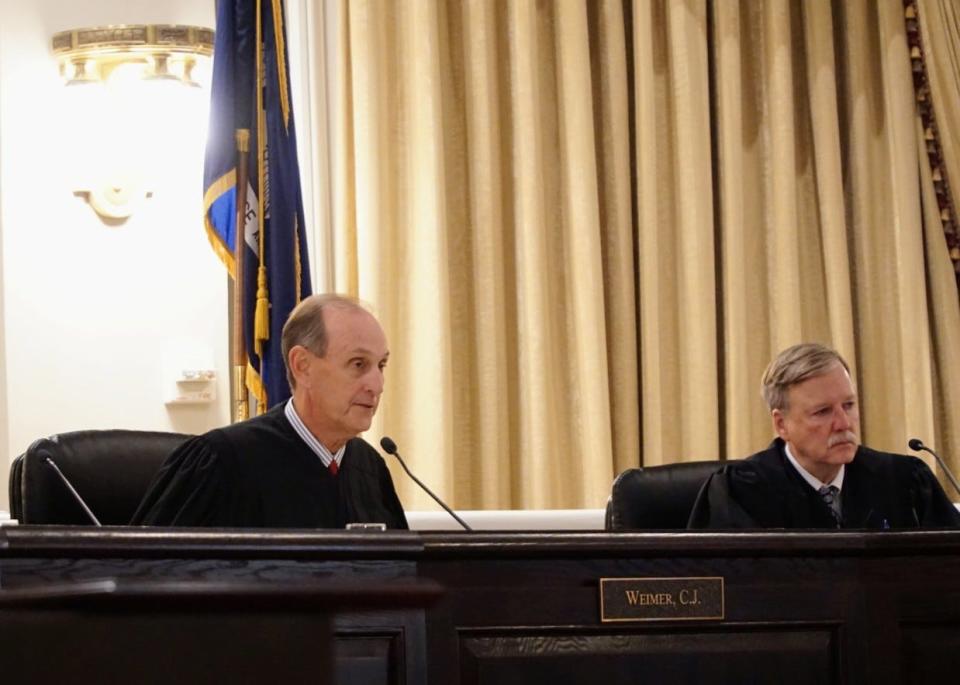
Trial courts sided with Ochsner in Lafayette and Shreveport earlier this year, finding the healthcare system has the right to fire employees that rebuff the mandate and that the employees similarly have the right to quit without getting vaccinated and find work elsewhere.
September: Judge won't block COVID-19 vaccine mandate at Ochsner Lafayette General
Associate Justice Will Crain, of Madisonville, pushed back on Faircloth’s argument, saying employees have the right to refuse medical care pushed by doctors, but he did not agree that the court must protect them from being fired from private employment for not complying with an employer’s mandate.
“I don’t disagree with right … to accept or reject medical care,” Crain said. “It becomes, who is going to protect that, and are we going to enforce that between private parties?”
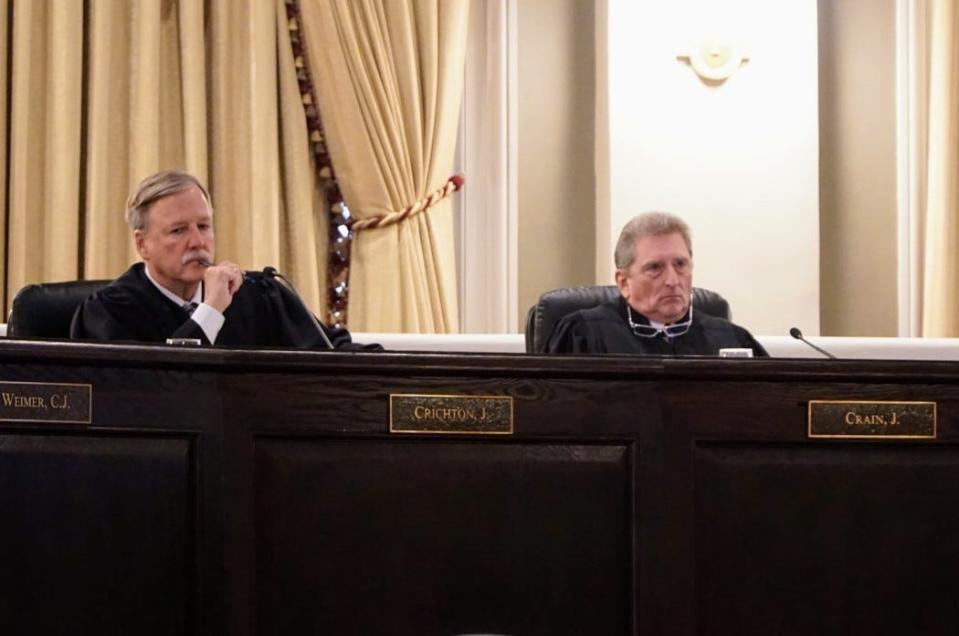
Associate Justices Jimmy Genovese, of Opelousas, and Jay McCallum, of Farmerville, posed questions about the limits of at will employment, probing how far private employers or employees can take the freedoms of the state’s at-will doctrine and how much the accommodations for unvaccinated healthcare employees mirror medical treatments.
“Isn’t is a balancing act between right to hire and fire and the rights of the employed individual? How far do you go?” Genovese asked Gibson.
“Are your clients willing to be tested, to wear masks, to wash their hands?” McCallum asked. “If someone sticks a needle in my arm or something up my nose to test me, that’s medical treatment to me.”
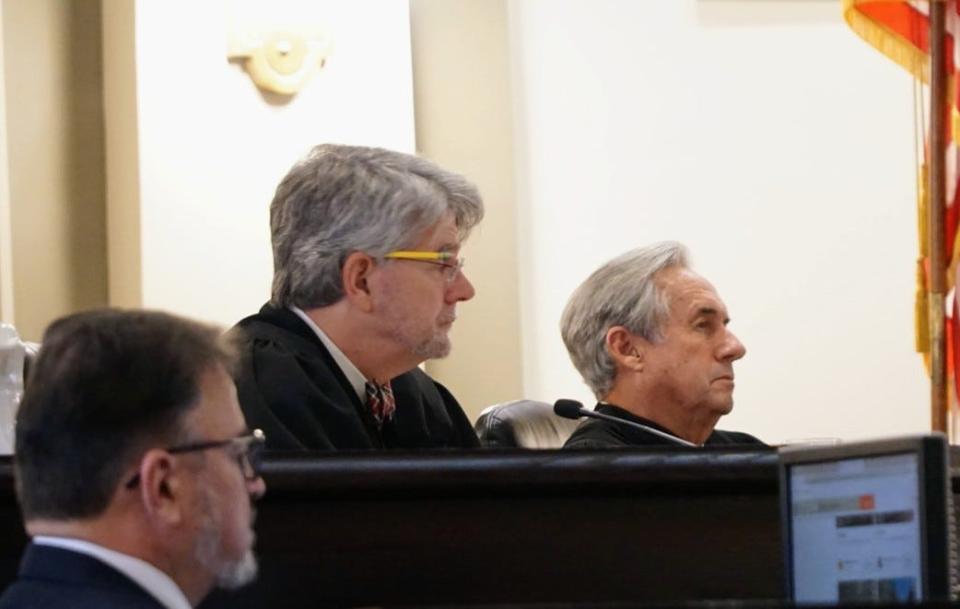
Weimer, who insisted the court would not hear arguments about the efficacy of the COVID-19 vaccines or other scientific matters, suggested the free market would determine how far employees and employers would take their freedoms and questioned whether the court should be involved in such matters.
“Is the balance not struck by giving the employee reciprocal rights? In a free market system, they are free to go somewhere else if they don’t like the rules of the game that the employer conducts,” Weimer said. “Should the courts get into this balancing act and become a quasi-HR department?”
The court’s three other associate justices did not interject in Tuesday’s arguments.
After the hearing, Faircloth acknowledged that the justices who spoke during the proceeding questioned the points he tried to make about employees’ right to refuse medical treatments. But he said he believes the justices will look more deeply into his claim that right is protected even from employers.
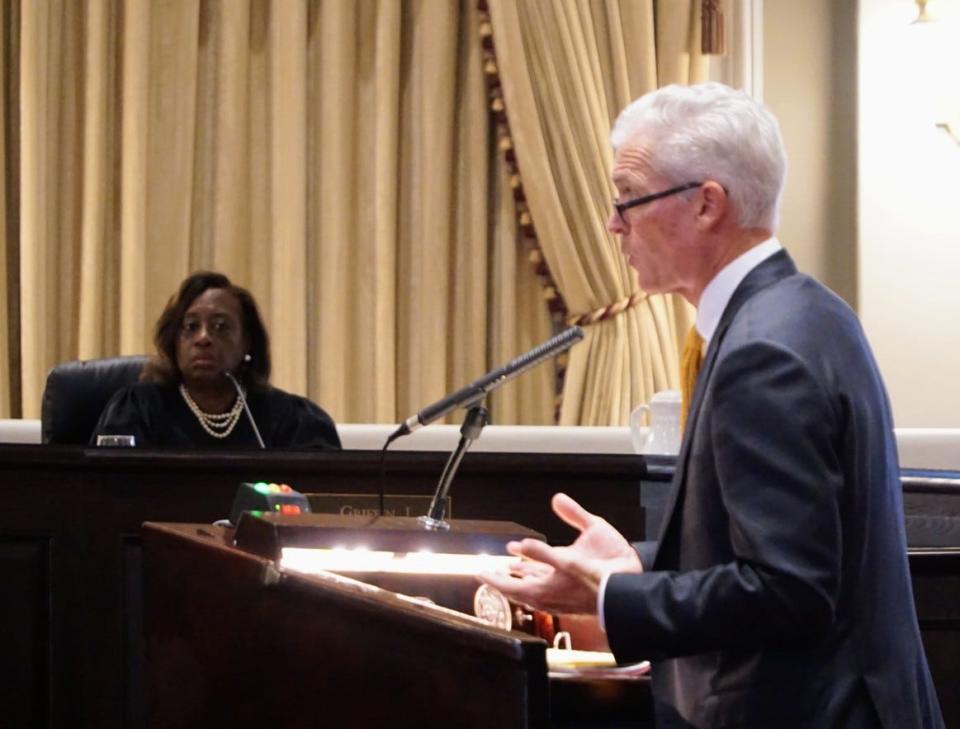
“I hope they go and look a little closer at it because (that) is the distinction that matters. That is the distinction,” he said.
Weimer granted Gibson and Faircloth 10 additional days to send their final arguments to the court in writing..
Follow Andrew Capps on Twitter or send an email to acapps@theadvertiser.com.
This article originally appeared on Lafayette Daily Advertiser: La. Supreme Court hears arguments on Ochsner’s COVID vaccine mandate

